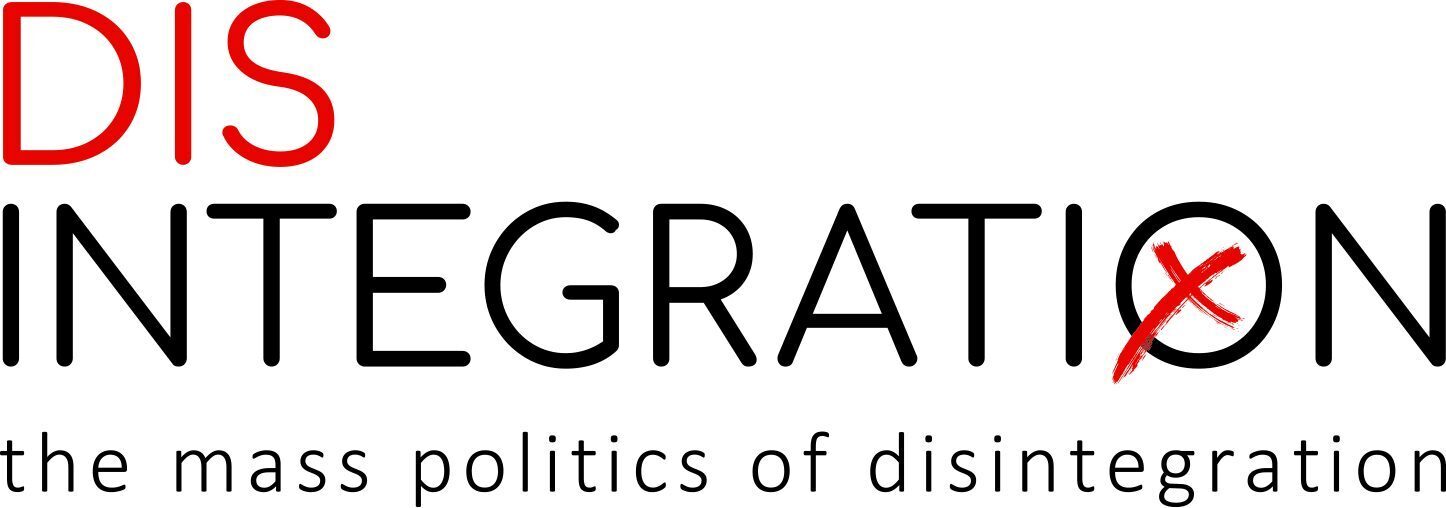Datasets
- Tracking Europeans’ opinions of Brexit and the EU: An EU-wide, six-wave cross-sectional survey, 2017–2019
- Swiss Panel Survey: Public opinion on Switzerland’s relations with Europe and the World, 2019-2022
- Nationalist Party Discourse Dataset
The Nationalist Party Discourse dataset provides data on nationalist/euroskeptic party communication in ten EU member states (Austria, Denmark, Finland, France, Germany, Ireland, Italy, the Netherlands, Poland, and Spain) evolved over the course of the Brexit process in the UK between 1 January 2012 and 31 December 2021. The dataset contains over 300 media articles that mention the EU at least once and contain the names, abbreviations, or synonyms of a nationalist party in close proximity to a EU reference. Sentences containing EU-related statements by nationalist politicians are classified into how aggressively party representatives position themselves toward the EU and by whether they engage in policy and or more substantive institutional critique.
Link to the dataset.
- EU and Brexit Corpus: A corpus of news articles on the EU and Brexit from major newspapers in thirteen European countries between 1992 and 2021
This corpus contains more than 2 million news articles from major newspapers in 13 European countries between 1992 and 2021, which are concerned with reporting on either the European Union, or Brexit, or both. The newspaper selection is based on the largest (in terms of circulation) nation-wide appearing dailies and weeklies for all the countries in our sample, that are available via LexisNexis. The corpus contains the text of the articles and a range of meta data. All articles are in original language. The corpus might be of particular interest for researchers seeking to understand media discourse on the EU and/or Brexit over the last decades in one or more of the countries in our data.
Find more information about the dataset here.
- International Organizations Corpus: A corpus of news articles on International Organizations from major newspapers in seven German and English speaking countries between 1990 and 2022
This corpus is a collection of close to 1 million news articles from major newspapers in 7 English and German speaking countries between 1990 and 2022, which are concerned with reporting on one or more of some 70 major international organizations. The corpus has been compiled using the LexisNexis news API. The corpus contains the text of the articles and a range of meta data. All articles are in original language. The corpus might be of particular interest for researchers seeking to understand media discourse on International Organizations and/or international integration over the last decades in one or more of the countries in our data.
Find more information about the dataset here.
Replication material
- Malet, G., & Walter, S. (2023). Have your cake and eat it, too? Switzerland and the feasibility of differentiated integration after Brexit. West European Politics, 1-30.
Link to replication material - Martini, Marco and Stefanie Walter (2023). Learning from Precedent: How the British Brexit experience counteracts populism outside the UK. Journal of European Public Policy, 1-28.
Link to replication material - Malet, Giorgio (2022). Cross-National Social Influence. How Foreign Votes Can Affect Domestic Public Opinion. Comparative Political Studies. Online First.
Link to replication material - Jurado, Ignacio, Sandra Léon and Stefanie Walter (2021). Brexit Dilemmas: Shaping Postwithdrawal Relations with a Leaving State. International Organization 76(2): 273-304.
Link to replication material - Walter, Stefanie (2021). Brexit Domino? The political contagion effects of voter-endorsed withdrawals from international institutions. Comparative Political Studies 54(13): 2382 –2415.
Link to replication material - Walter, Stefanie (2021). The Backlash against Globalization. Annual Review of Political Science 24: 421-442.
Link to replication material - De Vries, Catherine, Sara Hobolt and Stefanie Walter (2021). Politicizing International Cooperation: The Mass Public, Political Entrepreneurs and Political Opportunity Structures. International Organization 75(2): 306-332.
Link to replication material - Walter, Stefanie (2021). EU-27 Public Opinion on Brexit. Journal of Common Market Studies 59(3): 569–588.
Link to the replication material
- Walter, Stefanie (2021). Brexit Domino? The political contagion effects of voter-endorsed withdrawals from international institutions. Comparative Political Studies.
Link to replication material - Grynberg, Charlotte, Stefanie Walter, and Fabio Wasserfallen (2020). Expectations, vote choice and opinion stability since the 2016 Brexit referendum. European Union Politics 21(2): 255-75.
Link to replication material
We are building datasets:
- The DISINTEGRATION project has collected an EU-wide repeated cross-sectional survey. Six waves were fielded between August 2017 and December 2019. The survey includes information about respondents’ attitudes towards the EU, perceptions of the Brexit process, as well as general political attitudes and demographic characteristics.
- The DISINTEGRATION project fielded a five-wave panel survey in Switzerland between November 2019 and May 2022. The survey includes information about respondents’ attitudes towards the EU, perceptions of the Brexit process, attitudes towards immigration, globalisation and international cooperation, evaluations of the pandemic situations, personality traits, as well as demographic characteristics.
- The DISINTEGRATION project has fielded a survey in Sweden and Finland in November 2022. The survey includes information about respondents’ attitudes towards NATO accession, evaluations of the sanction regime against Russia, as well as general political attitudes and demographic characteristics.
- The DISINTEGRATION project is currently developing IOParlspeech, a dataset of statements on 78 international organizations (IOs) in the parliamentary debates of six countries (USA, Canada, UK, New Zealand, Germany, Austria). The dataset covers 1990 to 2018. It will be used to test theories of when, why, and how international cooperation becomes politicised in domestic politics.
